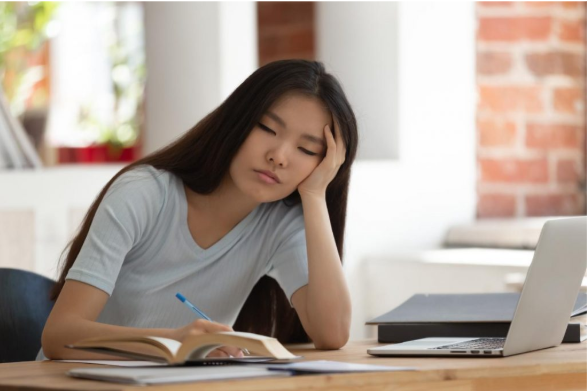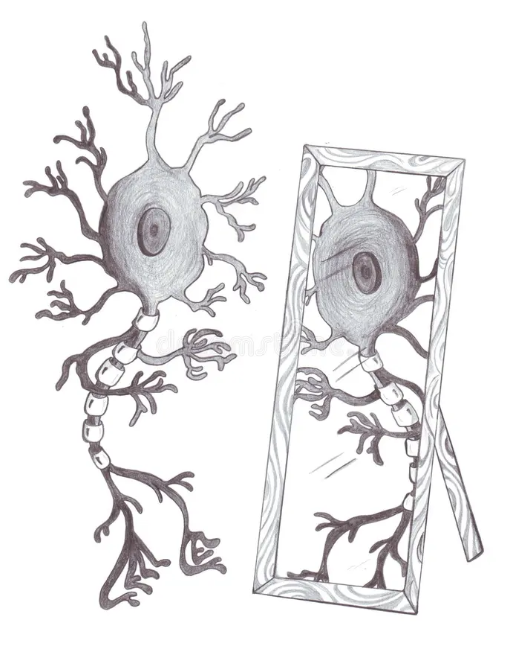It’s widely known that students in high school through college struggle with maintaining a sufficient amount of sleep every night. The Centers for Disease Control and Prevention (CDC) recommends that students ages 13 to 18 should get around eight to ten hours of sleep every night. However, do teenagers actually get the recommended hours of sleep each night?
Out of 181 students I surveyed, I was alarmed to find that only about 22% of students from UCVTS get the recommended amount of sleep on a school night. The other 78% sleep around seven hours or less, and a concerning population of 14.4% get less than five hours of sleep. Many students shared that the amount of time they spend doing homework and studying affects their sleep schedule. This was found repeatedly throughout the survey, as many students from UCVTS focus a lot of their time and effort on academics. However, high academic standards tend to lead to burnout and stress, resulting in constant anxiety. Twenty-one students struggle to receive adequate sleep due to medical disorders such as insomnia, which, according to the National Institutes of Health, “are highly prevalent in anxiety disorders” (Staner). Additional frequent factors contributing to a student’s sleep schedule were extracurricular activities and the amount of time students spend on their phones after school. While after-school activities such as sports, clubs, marching band, chores, jobs, and babysitting younger siblings take up a huge portion of a student’s after-school hours, countless students also lose precious time after school due to procrastination issues and an addiction to their devices; around three out of four students admitted to losing sleep due to the amount of time spent on their phones.
It is well known that not receiving the recommended amount of sleep every night could lead to health problems, but what damages can sleep deprivation cause for adolescents? For starters, a lack of rest can upset cognitive abilities resulting in a decrease in attention span, focus, and memorization skills. These three abilities are crucial for students to succeed in school; thus, a lack of sleep can result in a decline in academic performance. Moreover, sleep deprivation can affect a student’s emotions, making them more irritable and stressed. For example, a student may stay up extra late to study in hopes of obtaining a high grade on an upcoming test, when in reality, it may lead to a lower grade due to a lack of concentration and focus. Lastly, inadequate sleep can weaken a student’s immune system or even result in physical exhaustion, demonstrating that not receiving the recommended amount of sleep each night can be detrimental to a student’s physical, social, and academic life.
The amount of sleep students get drastically accumulates over the weekend, as approximately 86% of students receive the recommended amount of sleep — 8 hours or more — by the end of the week. Furthermore, the percentage only increases when students reach winter, spring, and summer break, raising the question, “Does school contribute to sleep deprivation among teenagers?” Although UCVTS enforces rigorous coursework on its students, both bad habits and immense academic pressure result in sleep deprivation among the student population.
Works Cited:
Cusack, T. (n.d.). Articles. Articles | Idaho State University. Retrieved November 7, 2024, from https://www.isu.edu/cob/blog/articles/how-sleep-impacts-your-studies.html
(2024). Familyfirstas.com. https://familyfirstas.com/wp-content/uploads/2024/09/What-Are-the-Effects-of-Sleep-Deprivation-in-Teens_-1024x683.jpeg
Hershner, S. D., & Chervin, R. D. (2014). Causes and consequences of sleepiness among college students. Nature and science of sleep, 6, 73–84. https://doi.org/10.2147/NSS.S62907
| Sleep and Health | Healthy Schools. (2023, July 18). CDC. Retrieved November 7, 2024, from https://www.cdc.gov/healthyschools/sleep.htm |
Staner L. (2003). Sleep and anxiety disorders. Dialogues in clinical neuroscience, 5(3), 249–258. https://doi.org/10.31887/DCNS.2003.5.3/lstaner
Zheng, Kelly. “How Much Sleep Do You Get?“ Google Forms, 4 Dec. 2024, https://forms.gle/HXAxDNBaPJn2fJih7

 The Origins of Daylight Saving Time: Why Do We Change the Clocks?
The Origins of Daylight Saving Time: Why Do We Change the Clocks?